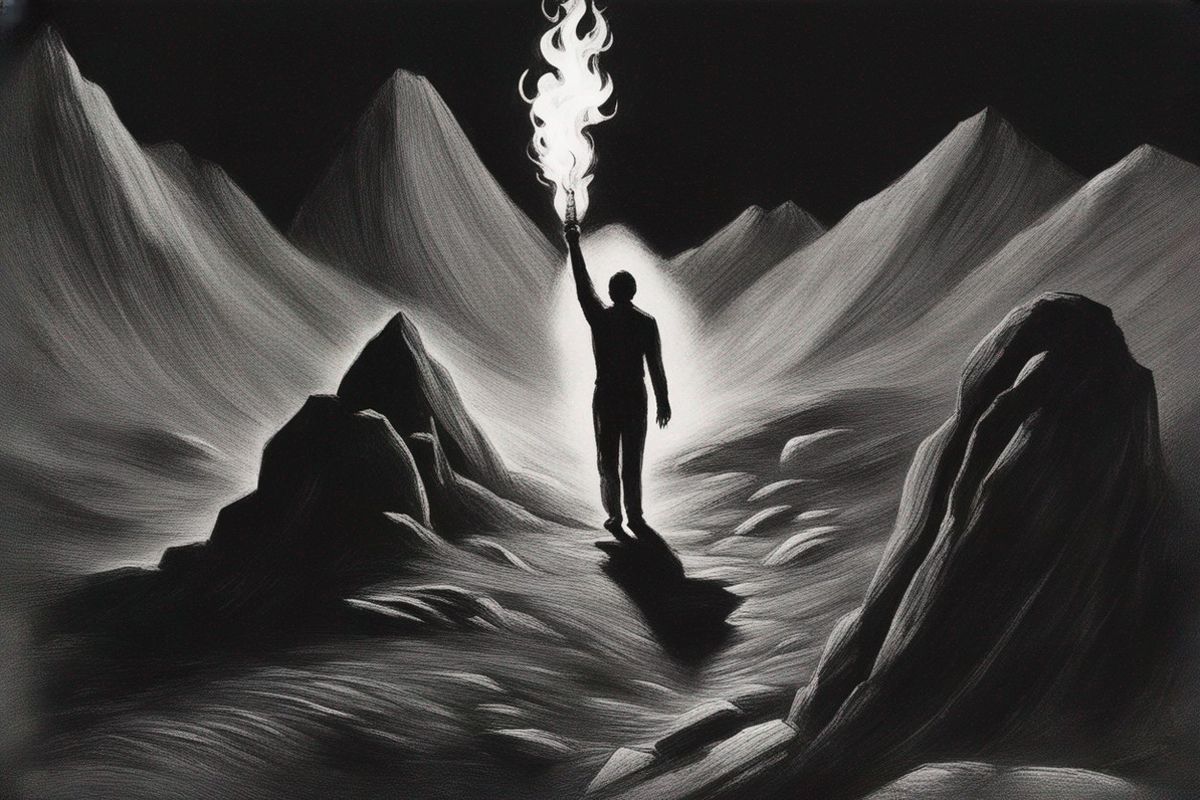Truth is Best
Truth is the highest virtue. Wisdom lights the path to virtue. Honesty lights your path to virtue.

Truth is best of all that is good.
It brings happiness, and happy are those
who are truthful for the sake of truth.
― Zarathustra, "Ashem Vohu" (Gathas 27.14, likely 2nd millennium BCE, creative translation)
The path to virtue is tortuous and rough. Even with an iron will, there is no clear map or path. You might, with the best of intentions, choose loyalty to your country over care for your neighbor, only to later discover that choice took you further from the path.
Amidst the complexity of pursuing virtue ― and because of the complexity of pursuing virtue ― one virtuous aim stands above the rest.
Truth is the highest virtue.
The pursuit of truth is a meta-strategy, it is the virtue that produces more virtue. However, not all truths are fruitful for virtue. Some truths are shallow, specific, particular, and only apply in a narrow context. Historical or scientific facts, for instance, don't in general provide any aid in finding virtue. Some truths are deep, but abstract and impractical. Mathematical theorems may hold true in all times and in all places, but they don't tell you how to live. Some truths, though, are deep and practical—these truths we call "wisdom". These are the truths which lead to virtue.
If the entire soul, then, follows without rebellion the part which loves wisdom, the result is that in general each part can carry out its own function—can be just, in other words—and in particular each is able to enjoy pleasures which are its own, the best, and, as far as possible, the truest.
― Socrates, as portrayed in Plato's Republic (587a; 4c. BCE)
The nature of wisdom makes it the ideal companion to virtue. Wisdom is the tool for knowing what is Good, for knowing what is virtuous, so the pursuit of wisdom enables the pursuit of virtue.
Wisdom lights the path of virtue.
To pursue virtue without wisdom is to run into a dark night. If you seek virtue, seek first wisdom to light the way.
But wisdom alone is not quite enough. While wisdom lights the way, there is another aspect of truth which catalyzes moral improvement.
Honesty is the cornerstone of virtue.
You must value honesty above all else
in order to be virtuous.
― Zarathustra, "Ashem Vohu", (creative translation)
Honesty is telling the truth about yourself. While wisdom explains and calms, honesty hurts. It shows our faults, it exposes our imperfections, it spotlights our weaknesses. The light of honesty is the friend of humility, and the enemy of pride.
Pride is the greatest obstacle to virtue.
Pride is comfortable. It wraps around us a story of who we pretend to be. In darkness, pride grows, unchecked, claiming to be more. And as long as we keep away from honesty's light, our prideful story can stand and keep us safe from shame.
To advance on the path of wisdom and virtue, you must let your old self die. Pride protects your old self, it covers imperfections, and it resists criticism to uphold its honor. Pride anchors you to who you have been, and in denying that you've done wrong, it resists improvement.
Honesty is the first chapter of the book of wisdom.
― Thomas Jefferson, in correspondence to Nathaniel Macon (1819)
When you let honesty banish the darkness, then the cracks begin to show. A salesman, who wants a house to look good, would rather keep the cracks hidden. But a builder, who wants a house to endure, would rather see the cracks than keep them hidden, because only with light can the cracks be repaired.
Wisdom lights the path to virtue. Honesty lights your path to virtue.
Honesty creates moral vulnerability. which hurts, in exactly the places where you can be better. Honesty's sting is what guides you to new heights, to a new self, to virtue.
Truth is the highest good.
Eudaimonia can be only found
by following the path of Truth.
― Zarathustra, "Ashem Vohu", (creative translation)
The path to the Good is not easy to walk. The scientific process seeks answers in the light, and exposes itself to the utmost criticism, because the path to Truth is hard and it is easy to get lost. The path to the Good is no less hard. We should, each of us, make our journey to virtue open to our friends, so that in the light of honesty we can support each other towards our most noble goal.
Comments ()